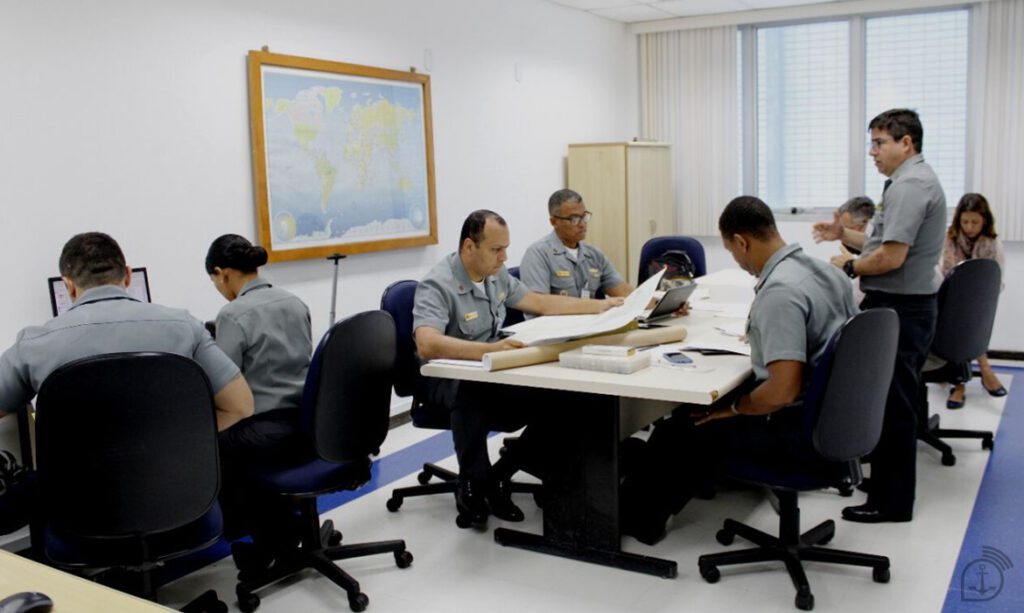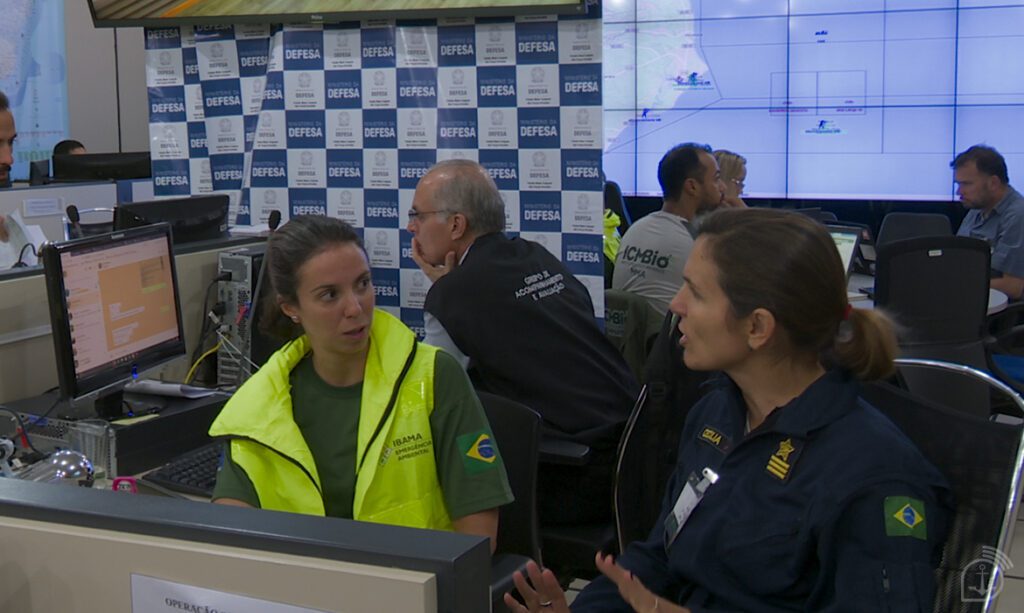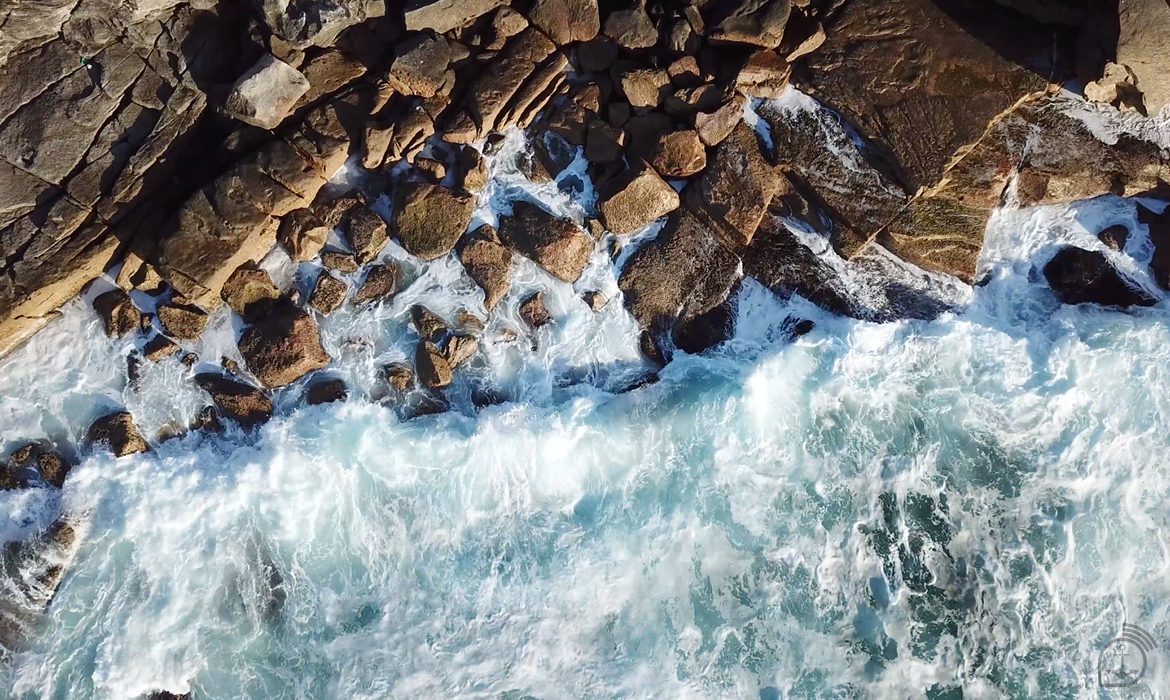Exercises were held at the War Games Center of the Naval War College
By Lieutenant-Commander (RM2-T) Luciano Franklin de Carvalho – Brasília, DF
In order to maintain a constant level of preparation for action in incidents involving oil spills in Brazilian waters, the Brazilian Navy (MB) began holding simulation exercises. The activity qualifies the military regarding operational procedures, human and material resources necessary for the execution of response actions to oil pollution incidents of national significance.
This year, the first simulated game was held in August, with another one scheduled for August 2023. This type of exercise is carried out by the Directorate of Ports and Coasts (DPC), with the support of the Naval War College (EGN). The experience of combating oil slicks of unknown origin in eleven Brazilian states in August 2019 has propitiated the improvement of the Navy’s military and organizations.
In order to improve the dynamics of the game and produce verisimilitude with real occurrences, fictitious situations were created involving the explosion of an oil tanker and also an incident that occurred on a maritime oil prospecting platform, with the consequent oil spill on the Brazilian coast. The simulation implies the analysis of each situation and the adoption of the appropriate measures by the groups of players. On the occasion, students from EGN’s post-graduate course in Maritime Studies participated in the initiative as observers.
Since the National Contingency Plan for Oil Pollution Incidents in Waters under National Jurisdiction (PNC) was instituted in 2013, the Navy, the Brazilian Institute of Environment and Renewable Natural Resources (IBAMA) and the National Agency of Petroleum, Natural Gas and Biofuels (ANP) began to conduct their own training and simulations, in addition to having participated in several exercises conducted by oil exploration companies that eventually have the participation of international institutions, such as the International Tanker Owners Pollution Federation Limited (ITOPF).

Lessons Learned
One of the main lessons learned from the oil spill cases that occurred in 2019 refers to the participation of the scientific community in order to interpret the available information and work together with the current oceanographic technological knowledge. As a result, the Scientific Coordination of the Monitoring and Assessment Group (GAA) was created, whose main purpose was to enable the integration of researchers and experts in the scientific area with groups operating in the regions affected by the oil and environmental agencies.
The GAA was created in 2013 by the decree that established the NHP and is composed of the Navy, IBAMA and ANP. In January of this year, the legislation underwent changes, establishing a new organizational structure, guidelines, procedures and actions. “A considerable change that the new decree brought was the permanent character of the GAA, so that this group no longer needs to be activated, working permanently in the monitoring and evaluation of oil pollution incidents in Brazilian legal waters and evaluating, among other responsibilities, if the incident has national relevance.
It is worth noting that the new decree created the function of coordinator of the OAG, which is exercised by one of its members, on an alternating basis, for a period of two years, being the Navy the current coordinator, until January 2024,” informed the Director of Ports and Coasts, Vice-Admiral Sergio Renato Berna Salgueirinho.
According to the new decree, the GAA is also responsible for evaluating the signing of technical cooperation agreements with public or private entities, of recognized technical expertise in the area of emergency response. Researcher Ana Lucia Eufrasio, from the State University of Ceará, a participant in the working group created by the GAA, highlighted how the researchers work in the process of pollutant analysis.

“The hypotheses are raised and discarded through a scientific process that we adopt when we observe a phenomenon that was provoked, natural, anthropogenic, or an accident. Every researcher has an obligation to observe the phenomena that are in the surroundings and not simply dismiss them out of hand. After observing that one phenomenon is unrelated to another, we discard the hypothesis.
Marine News Agency *** Translated by the DEFCONPress FYI Team ***
